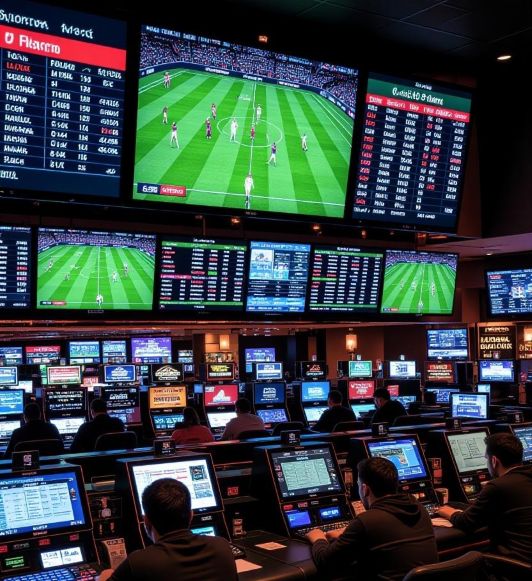
Betting has long been part of human culture, from dusty back alleys in Delhi to the bright screens of New York City’s mobile apps. What once thrived as informal guessing games among friends and neighbors in India has now transformed into a data-driven, regulated industry in the United States. Yet, at their core, both share a universal appeal; risk, thrill, and the promise of reward.
In India, the legacy of street betting remains deeply ingrained in local culture. Games like Delhi Satta King have been played for decades, reflecting a community-based form of entertainment where numbers, luck, and strategy intertwine. On the other hand, New York has taken a different path, moving gambling from shadowy corners to the spotlight of legitimacy through carefully structured regulation and technology.
The Rise of New York’s Legal Betting Ecosystem
When New York legalized mobile sports betting in 2022, it changed the landscape of American gambling overnight. Within weeks, millions of dollars flowed through licensed apps like FanDuel and DraftKings. Legal bet on the Empire State’s new rulebook gives an in-depth look at how this transformation was guided by state policies and regulatory oversight. Bettors could now place wagers on basketball, baseball, or even European football—all under government oversight.
Technology plays a central role in keeping this system fair and engaging. Data analytics track betting behavior, AI monitors unusual activities, and blockchain helps prevent fraud. Every transaction is recorded, every bet traceable. This starkly contrasts India’s informal betting markets, where winners often rely on word of mouth and trust rather than digital verification.
India’s Informal Culture of Numbers
Street betting in India, though technically illegal, is woven into everyday life. Whether it’s cricket matches, daily number draws, or community-based games, millions participate without the protection of formal regulation. The fascination comes from simplicity: pick a number, wait, and hope for fortune. Despite periodic crackdowns, the allure persists because it feels personal and communal. The small stakes and high excitement make it more than a game, it’s a cultural pastime.
Games like Sattaking mirror this spirit of intuition and anticipation. It is less about professional gambling and more about human curiosity toward chance. Yet, without proper oversight, participants face risks: scams, unrecorded winnings, and even legal consequences. This gap is precisely where countries like the United States, especially states like New York, have succeeded by turning informal play into a structured economic powerhouse.
The Tech Difference: From Chalkboards to Apps
The shift from manual number boards to smartphone apps reflects how societies adapt gambling to their times. Decades ago, Indian bookies manually recorded bets on paper, often hidden away. Now, in Manhattan, those same bets occur through sleek interfaces offering real-time updates, digital odds, and instant payouts. Accessibility and convenience have made betting mainstream rather than taboo.
- AI-driven risk assessment: Detects betting patterns and protects users from addiction.
- Geo-fencing technology: Ensures only residents within state lines can place bets legally.
- Transparency tools: Provide bettors with full access to their transaction histories.
While Indian platforms operate underground, American ones thrive under digital clarity. This contrast highlights how the same thrill of chance can evolve from secrecy to sophistication when supported by policy and innovation.
Lessons from Both Worlds
Both India and New York reveal how deeply betting taps into human psychology. In one, it’s community and chance. In the other, it’s technology and regulation. Yet both depend on the same principle, trust. People must believe in the fairness of the game, whether it’s a paper slip in Mumbai or a live odds app in Brooklyn.
Experts believe a middle ground could be possible someday. With the rise of fintech and mobile accessibility, India could regulate its informal betting culture and channel it toward safer, taxable, and transparent systems. If that happens, games like Sattaking could shift from being underground phenomena to legitimate entertainment options, much like sports betting in New York.
The Future of Global Betting
As technology blurs borders, betting is no longer confined to one country’s streets or another’s screens. It’s becoming a global pastime shaped by innovation, ethics, and governance. Countries that once ignored informal gambling now see it as a potential revenue source and a tool for digital transformation. Meanwhile, players around the world are beginning to expect transparency and control rather than secrecy.
From Satta streets to Manhattan markets, the evolution of betting shows a remarkable cultural journey. Both worlds share the same heartbeat of chance but differ in how they manage it. As India watches the growth of regulated gaming abroad, perhaps the next chapter of its own betting story will move closer to legitimacy, balancing thrill with safety, and tradition with technology, just as New York has done with games like Sattaking.